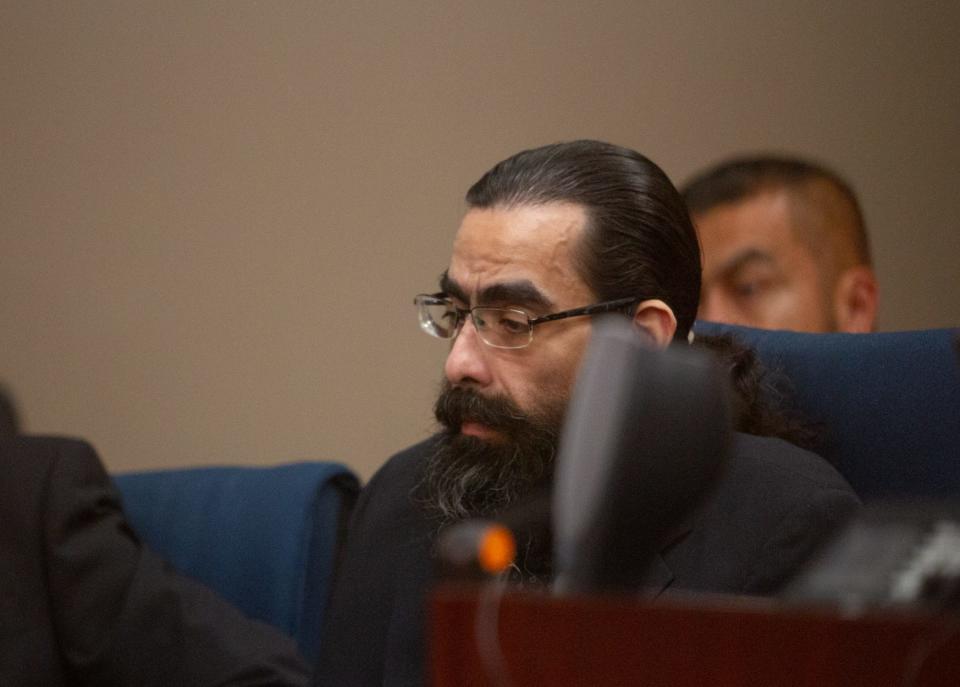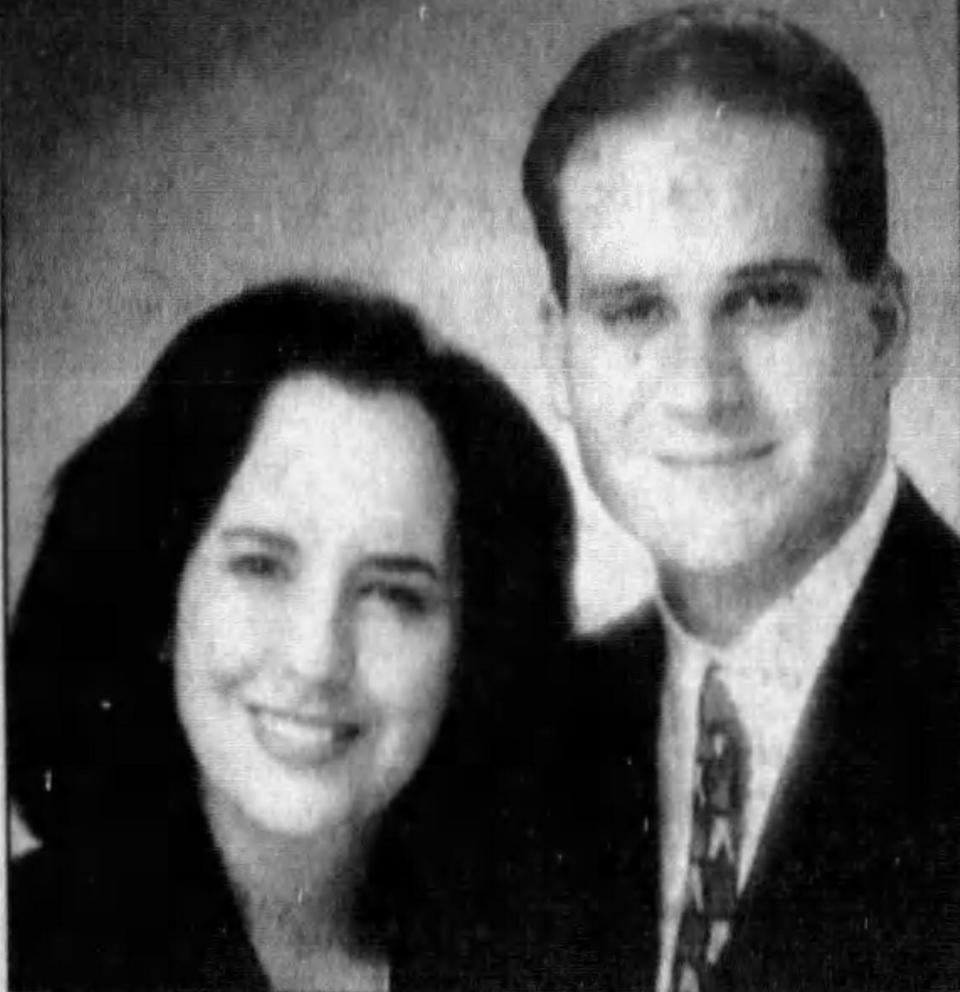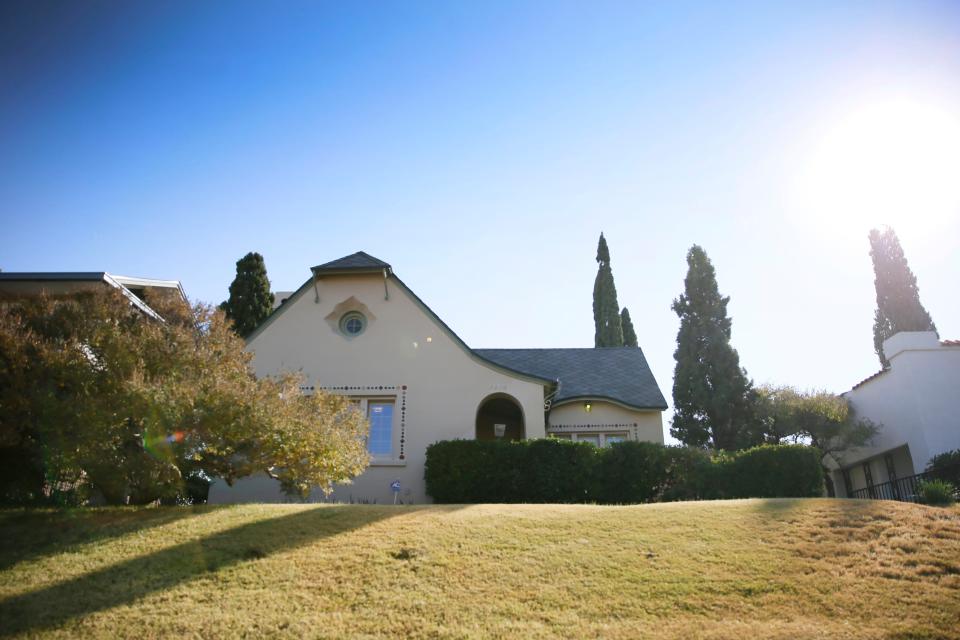Controversial geofence warrant used to arrest suspect in El Paso lawyer's fatal shooting
El Paso Police Department detectives used a controversial geofence warrant after struggling for months to find a lead in the fatally shooting of a lawyer who was allegedly killed by a man believing satanic abortion rituals were being conducted at Memorial Park.
Several El Paso police officers testified Tuesday, Oct. 17, on efforts to identify a suspect during the second day in the murder trial of Joseph Angel Alvarez. Geofencing uses GPS technology to create a virtual geographic boundary to track mobile devices.
Alvarez is accused of fatally shooting El Paso lawyer Georgette Kaufmann on Nov. 14, 2020, at her home in the 3000 block of Copper Avenue in the historic Manhattan Heights neighborhood. Georgette Kaufmann's husband, Daniel Kaufmann, was also shot but survived his injuries.
Defense attorneys argued Alvarez was suffering from a mental health illness that caused him to believe satanic abortion rituals were being performed at Memorial Park in Central El Paso. State prosecutors countered any alleged mental health issues were not an excuse for Alvarez's actions.

The trial, which started Monday, Oct. 16, is being held in the 210th District Court at the Enrique Moreno County Courthouse in Downtown El Paso. Judge Alyssa Perez is presiding over the trial.
State prosecutors Raoaa King and Ray Duke are trying the case for the El Paso District Attorney's Office, while Alvarez's defense team is led by attorney Greg Anderson.
Geofence warrant leads to Joseph Angel Alvarez's arrest
El Paso police Detective Abraham Gonzalez testified Tuesday about the department's efforts to find a suspect in the ambush attack.
Police went to more than 30 houses in the area of the shooting, looking for witnesses who could provide any information. This effort led to no leads in the case.

A background check and interviews with the victim's family and friends also led to no information on a possible suspect, Gonzalez testified.
A search of nearby Memorial Park for witnesses or evidence also were unsuccessful.
About 15 days after the fatal shooting, police obtained a "tower dump" for cellular providers to gather all information on anyone using a phone near the victim's house and around the time the shooting took place, Gonzalez testified. This also resulted in no leads on a suspect.
Six months into the investigation, detectives obtained a geofence warrant ordering Google to turn over all data of any devices using Google accounts in the area and at the time of the shooting, Gonzalez testified. The warrant ordered the data for accounts used between 6 to 8 p.m. on Nov. 14, 2020, and within 400 feet of the Kaufmann's house.
The warrant led police to 29 devices used in the area around the time of the shooting, Gonzalez testified.
Detectives narrowed the number of devices to 17. They requested more location data on those 17 devices, including distance traveled by the devices, and where they were before and after the shooting.
At this point, Gonzalez claimed police had gathered no personal information on any of the people who used those devices.
More: Man shot, killed in El Paso SWAT standoff at Speedway gas station in the Upper Valley
Police then narrowed the number of devices to five. They then obtained information on the Google subscriber using each device, including their contact information.
Detectives then began contacting those five people. They were only successful in finding and interviewing four of the users, Gonzalez testified.
They then obtained a warrant allowing them to go through each device, Gonzalez said. This led to detectives finding Alvarez's phone.
Detectives found an email sent by Alvarez with the subject line, "Judgment Day," Gonzalez testified. The email was sent to various U.S. Army and other military emails.

Alvarez claims in the email, which prosecutors called a manifesto, that satanic abortion rituals were being conducted at Memorial Park. The email talks about the evils of abortions and Alvarez's need to show the world that satanic abortion rituals were being performed.
The email also includes antisemitic and anti-Democratic Party ramblings. It also mentions former President Donald Trump and President Joe Biden.
The email also claims the homes in the area are "generational houses" and are "cursed," Gonzalez testified.
Attached to the email were about 22 photos of Memorial Park and neighboring houses. Anderson claimed the photos included tables and benches that Alvarez believed were being used as altars for the satanic rituals.
More: Fort Bliss driver faces DWI manslaughter case in fatal Loop 375 chain-reaction crash
The email goes on to state "trolls" would take the aborted fetus, according to testimony. Alvarez also wrote the trees in the area were misshaped because the aborted fetuses were planted in the ground.
El Paso police launched an investigation into Alvarez, who lived about 10 miles from the Kaufmann's house, Gonzalez said.
Anderson objected several times to testimony on the geofence warrant being presented to the jury. He argued the use of geofence warrants by law enforcement violates the U.S. Constitution and state laws.
Judge Perez ruled the testimony was admissible.
The American Civil Liberties Union also has raised issues with geofence warrants, stating it is an "invasive surveillance technique that enables law enforcement to search for and locate unknown numbers of people in a large area without reason to believe they were engaged in criminal conduct."
Alvarez was arrested Sept. 9, 2021, in connection with the fatal shooting.
He was charged with one count of murder and aggravated assault with a deadly weapon. If convicted, he is facing 99 years or life in prison.
Testimony in the trial continued Tuesday afternoon, with more witnesses expected to take the stand Wednesday.
Aaron Martinez may be reached at amartinez1@elpasotimes.com or on Twitter @AMartinezEPT.
This article originally appeared on El Paso Times: Detectives used mobile phone to link attacker to El Paso lawyer slaying

